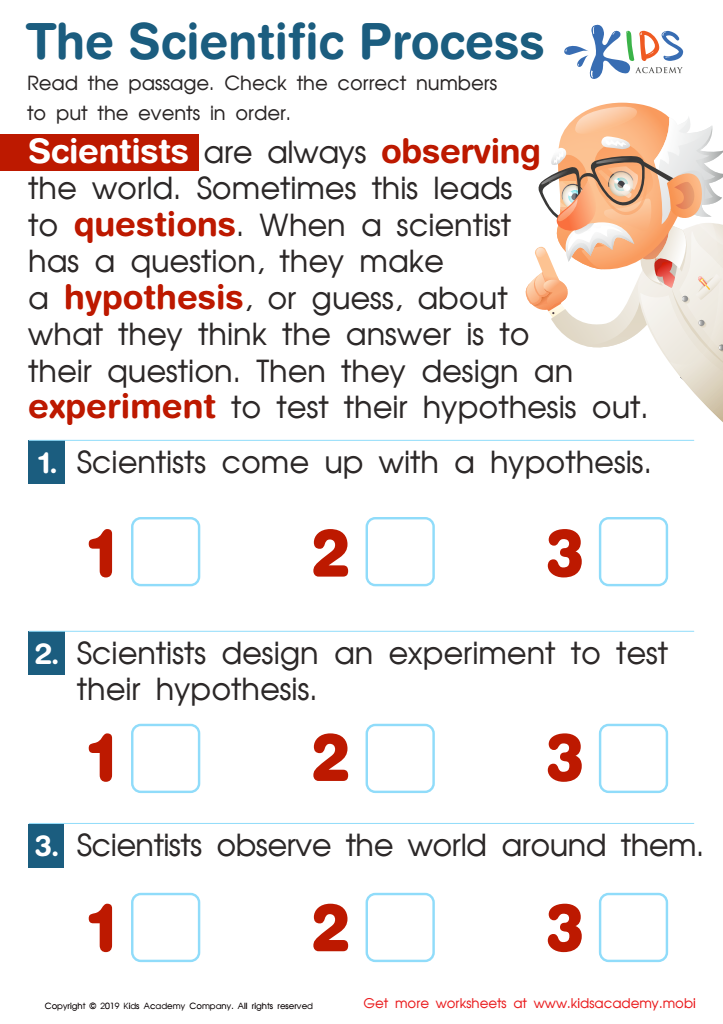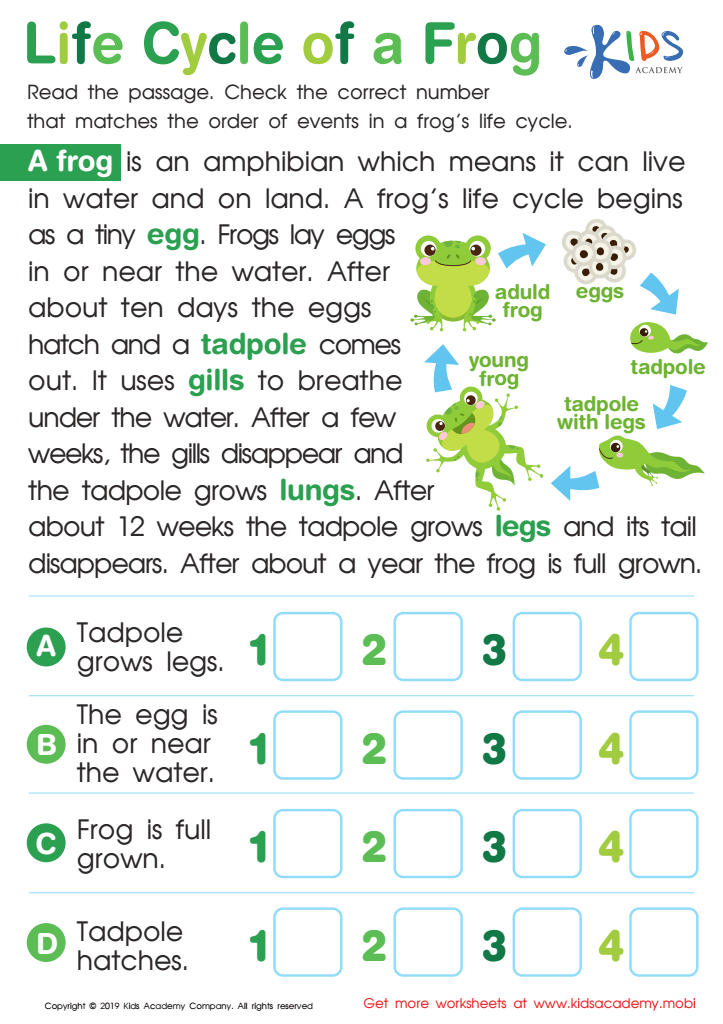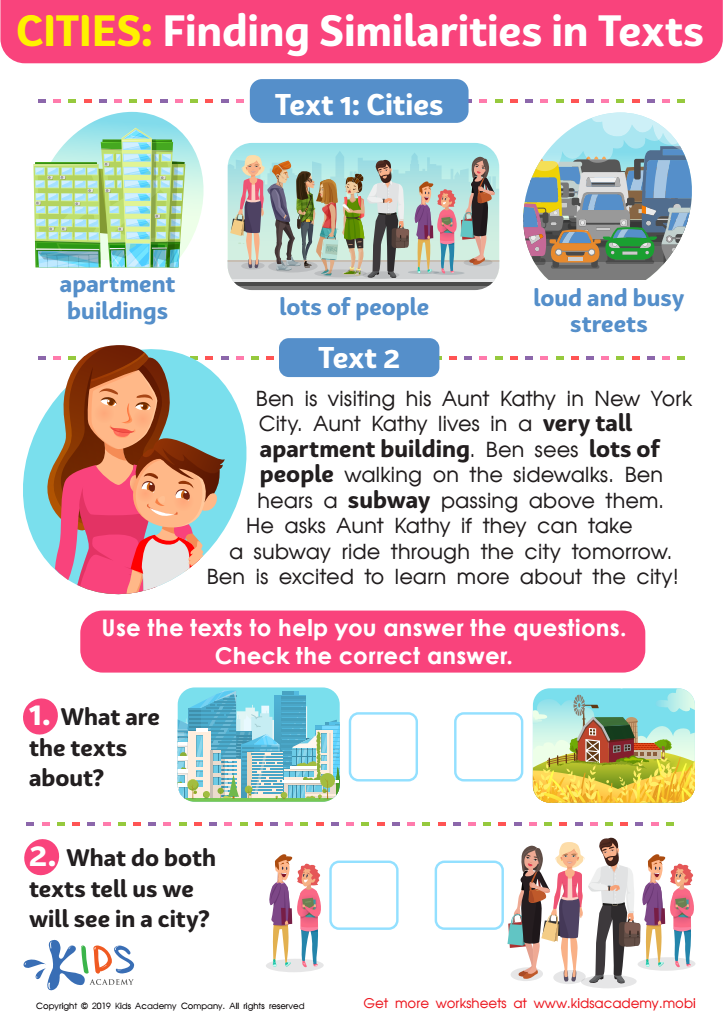Enhancing observation skills Easy Reading Non-Fiction Worksheets for Ages 4-9
3 filtered results
-
From - To
Enhance your child's observation skills with our Easy Reading Non-Fiction Worksheets for ages 4-9. Tailored to captivate young minds, these worksheets focus on honing critical thinking through engaging, informational texts. Each activity encourages children to closely read, analyze, and interpret details within non-fiction passages, sharpening their ability to observe and understand the world around them. Perfect for early learners, these resources support literacy development, boost comprehension, and provide a fun and educational experience in the classroom or at home. Ensure your child's success in reading and observation with these expertly crafted learning tools.


The Scientific Process Worksheet


Life Cycle of a Frog Worksheet


Cities: Finding Similarities Worksheet
Enhancing observation skills through easy reading non-fiction for ages 4-9 is crucial for a child's cognitive and emotional development. At this impressionable age, children are naturally curious and highly absorbent of their surroundings. Non-fiction books serve as invaluable tools that channel this curiosity towards constructive learning and keen observation.
First, honing observation skills aids cognitive development. Children begin to notice patterns, make predictions, and ask questions, laying a strong foundation for critical thinking. These skills translate into better performance in academic subjects like science and math, where observation and inquiry are essential.
Second, fostering keen observation from an early age also supports language acquisition. When children read carefully designed non-fiction, they encounter enriched vocabulary and complex sentence structures, enhancing their comprehension and verbal skills.
Social-emotional learning is another benefit. Observing real-world scenarios teaches empathy and an understanding of diverse perspectives. For example, reading about different animals or cultures encourages respect for natural diversity and global interconnectedness.
Additionally, early development of observation skills boosts confidence. A child who learns to observe and understand their environment feels more competent and secure.
Parents and teachers have a pivotal role in this developmental phase. By choosing enriching, easy-to-read non-fiction, they provide an engaging, purposeful activity that equips children with essential life skills, setting the groundwork for lifelong curiosity and learning.
 Assign to My Students
Assign to My Students














